The journey of the pothichoru from homes to hospitals in Kerala

An elderly woman from Ambalamedu tops a parcel with a pappadum.
| Photo Credit: Thulasi Kakkat
From the small pond within the premises of his home in Ambalamedu, Kerala, Basil nets around 20 fish, retains a few for his family, and distributes the rest to his neighbours. The next morning, his mother Leela Varghese starts the day a bit early like her neighbours, boils a few extra cups of rice, fries the fish, prepares omelettes, pappadum, and sambar for lunch for her family. She then rushes out to collect a few banana leaves to wrap the extra food as pothichoru (food parcels) before members of the Democratic Youth Federation of India (DYFI) come to collect the food by around 9 a.m.
Watch | Pothichoru prepared by homemakers in Pulluvazhi, Ernakulam district
| Video Credit:
Thulasi Kakkat
What started off in Thiruvananthapuram six years ago with 200 food parcels has now expanded to more than 45,000 pothichoru per day primarily for patients and bystanders at government hospitals in Kerala, says DYFI State secretary V.K. Sanoj. “We have delivered around 6.5 crore food parcels in total,” he adds.
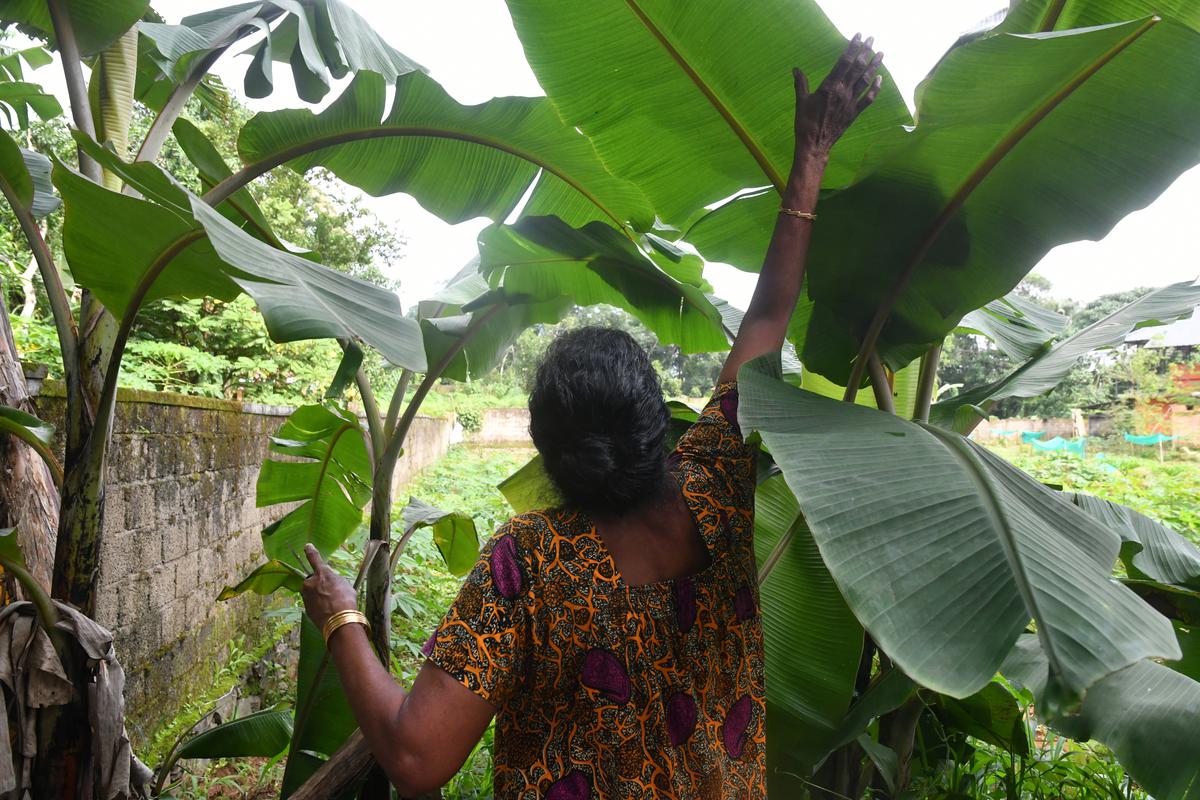
Leela Varghese collects a banana leaf to wrap parcels.
| Photo Credit:
Thulasi Kakkat
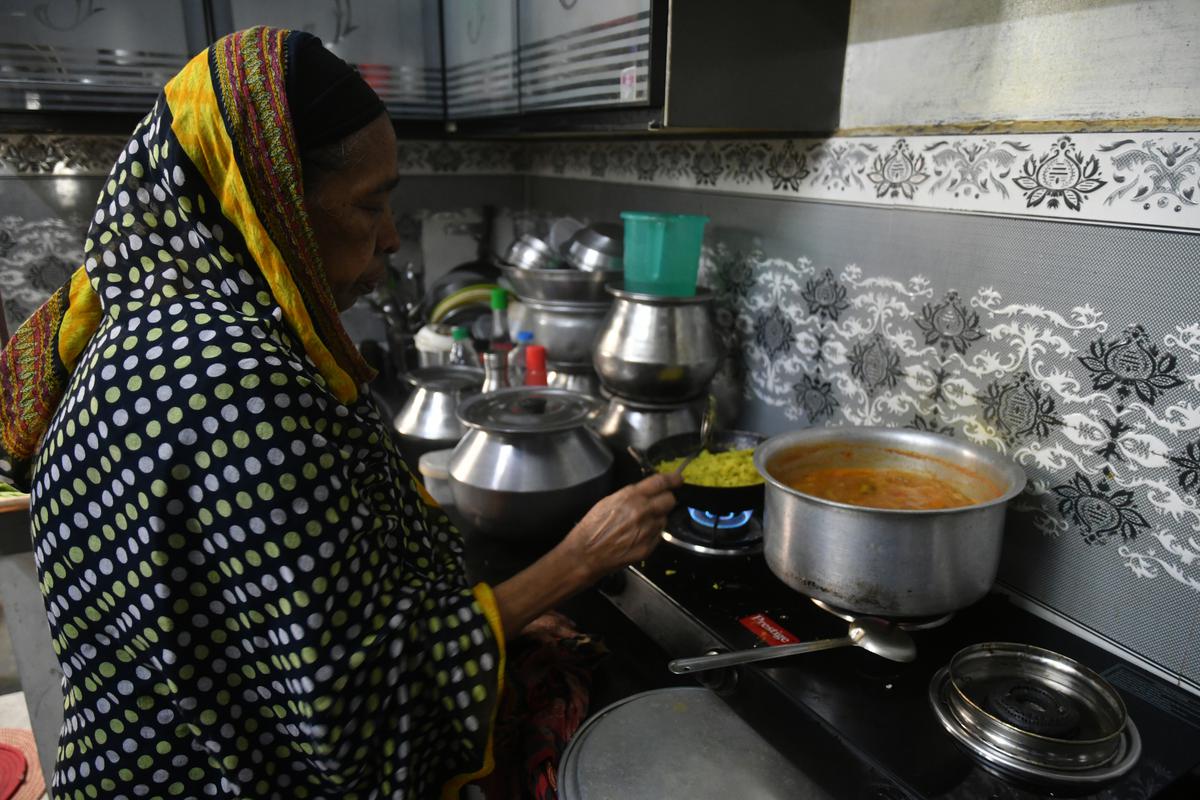
A 65-year-old woman from Mattancherry preparing sambar.
| Photo Credit:
Thulasi Kakkat
Something extra
For Manju Salih from Mattancherry in Kochi, even though it is a race against time to prepare five additional parcels before her children leave for school, she makes sure there is something more — a curry with fish or eggs mostly. “We don’t know who receives the parcels. Whoever they are, they are like our family. We share the same food,” says Salih Zaman, Manju’s husband.
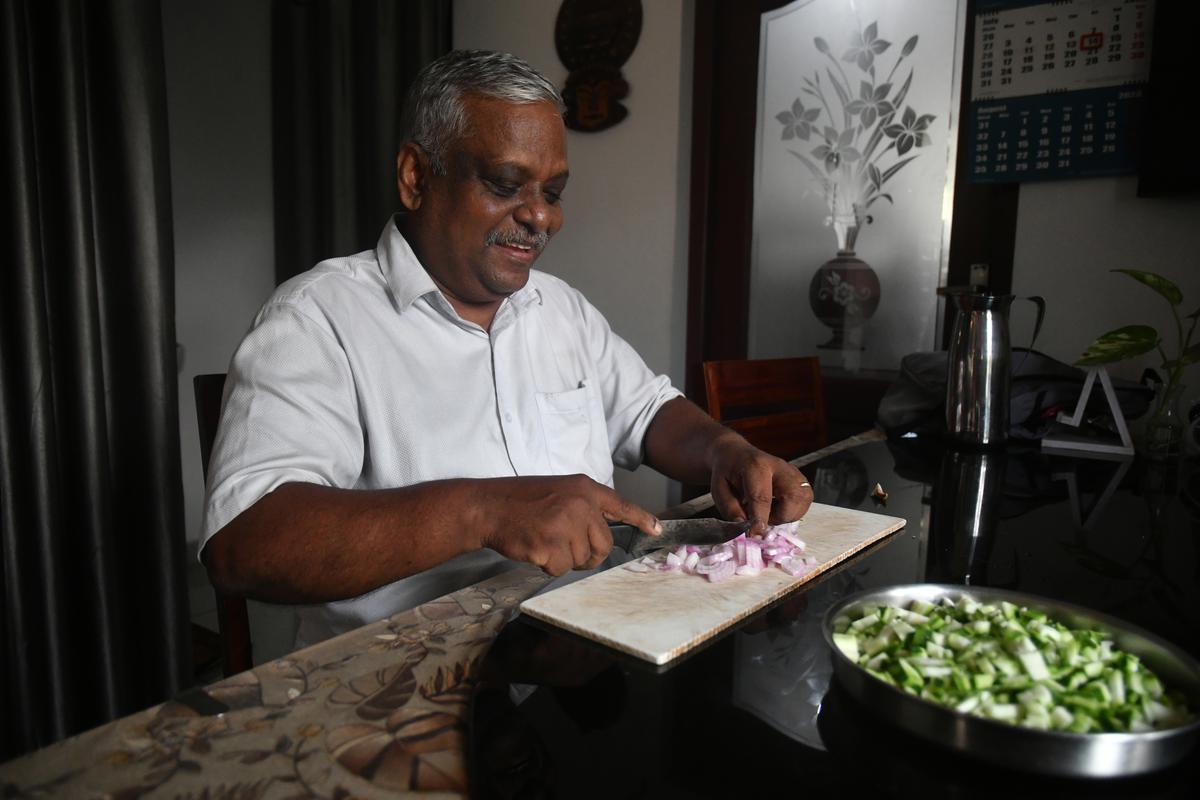
A man chops vegetables for food to be delivered to the Ernakulam Medical College.
| Photo Credit:
Thulasi Kakkat
What sets the scheme apart is its mode of functioning, where no additional cost is incurred: it does not involve employing cooks, maintaining a large kitchen or using expensive packing materials. A yearly calendar is charted out by the CPI(M)’s youth wing for every district in Kerala, whereby each area is allotted a specific day to collect parcels and supply to the local government hospital. DYFI volunteers remind people who volunteer to cook two days prior and collect parcels on the designated day.
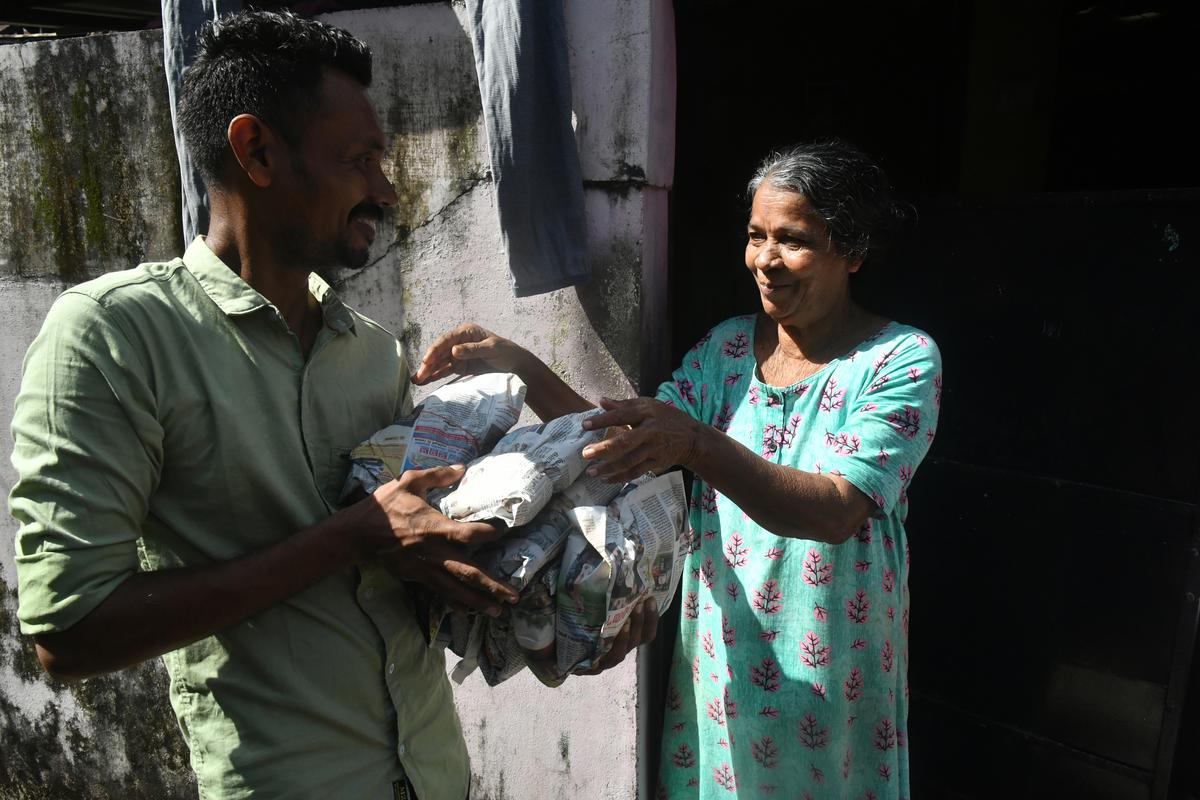
A DYFI activist in Mattancherry collecting food parcels.
| Photo Credit:
Thulasi Kakkat
All walks of life
The calendar is prepared in such a way that each unit gets the duty just twice a year, ensuring that those who cook are not burdened by the job.
“There is no caste, religion, or political party affiliation when it comes to the scheme. People from all walks of life contribute,” says Sanoj. Besides patients and bystanders at the Government Medical College, Ernakulam, attenders, nurses, students, drivers, and security staff rely on the pothichoru. However, there is no mechanism to make sure that only the intended beneficiaries receive the parcels.
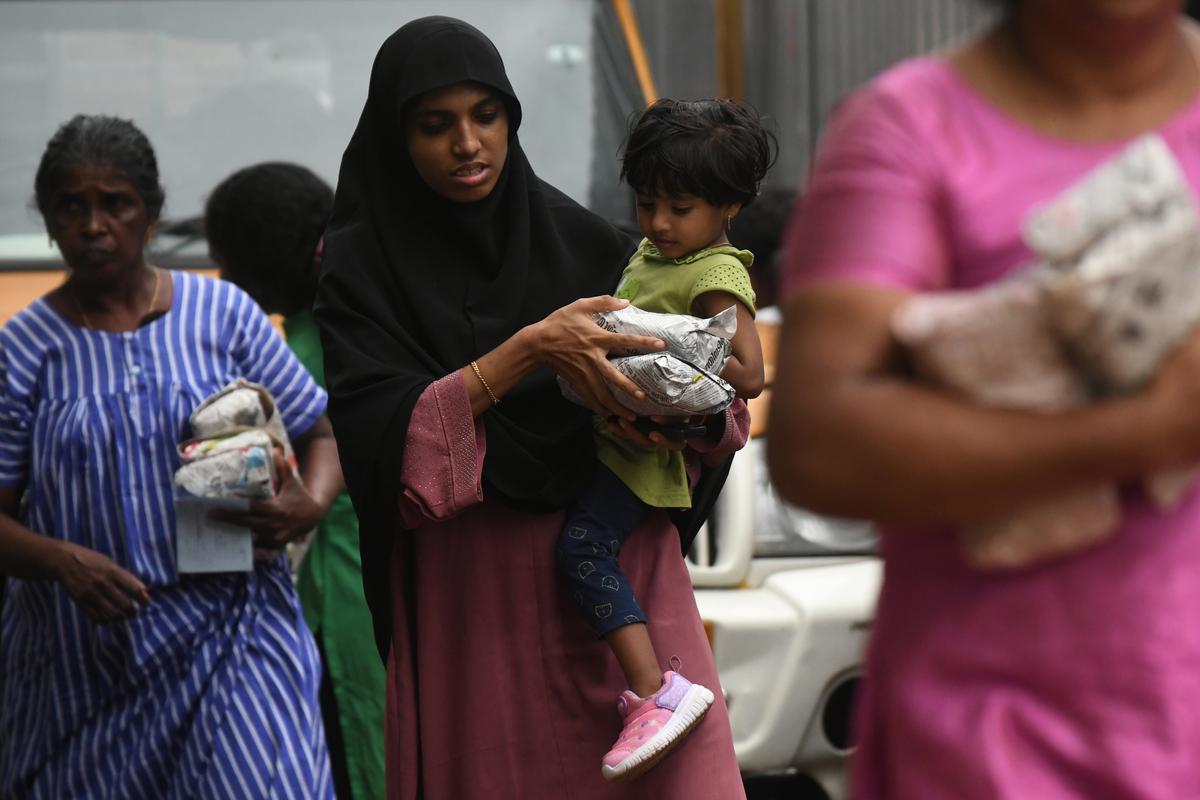
Visitors to patients at the Ernakulam Medical College with food parcels distributed by DYFI.
| Photo Credit:
Thulasi Kakkat
For 68-year-old K.M. Suhara, who had previously banked on these parcels when she had to visit the hospital, cooking a few extra packets is more than gratifying. She stays in a rented house in Mattancherry with her son Naser, an autorickshaw driver, the sole earning member of the family. “I woke up at five in the morning to prepare four parcels of erachichor [rice mixed with meat],” she says with a smile.
In the Koovapadam East unit of DYFI in Mattancherry, a group of 15 neighbours comes together, borrows utensils from the nearby temple, and prepares around 250 vegetarian parcels for Ernakulam Medical College.
“There have been instances where people have blessed us when we handed over the parcel, some have even called us from as far as Palakkad to thank us,” says Aslam K.A., an auto driver and former secretary of DYFI, Mattancherry South Mandal committee.
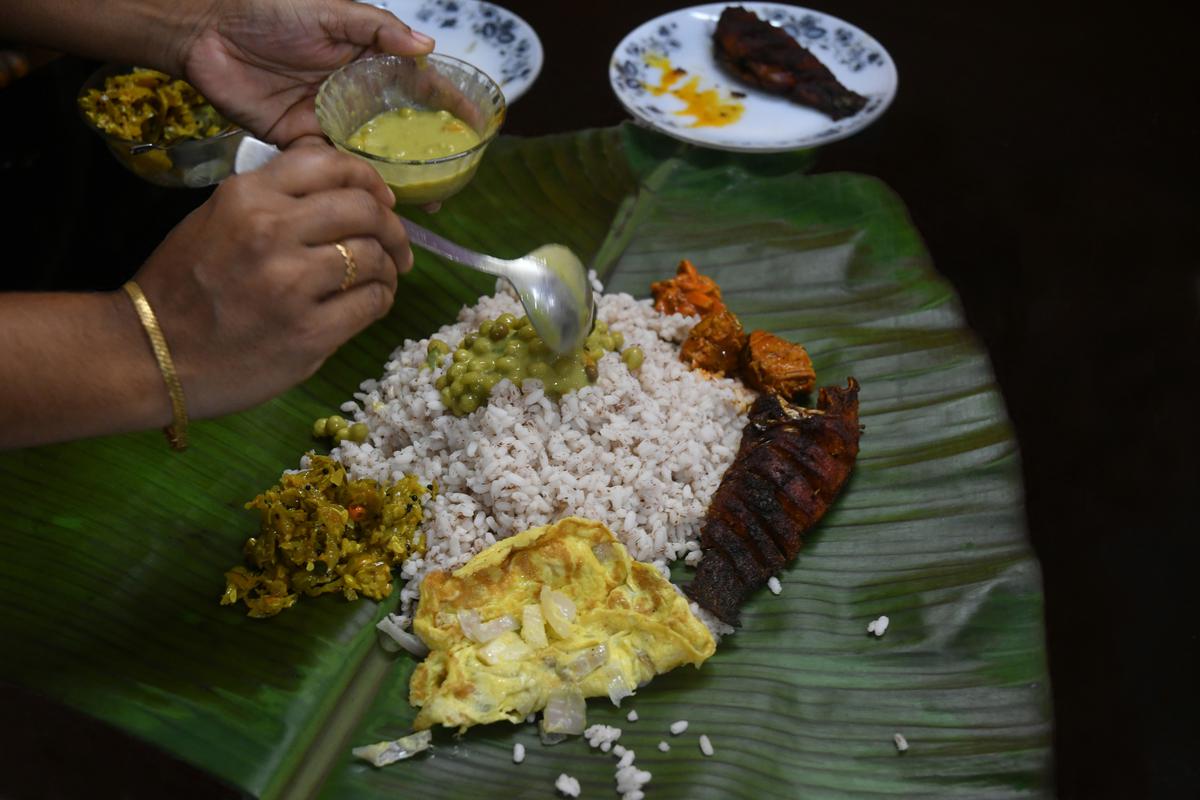
A parcel being packed at a house in Ambalamedu.
| Photo Credit:
Thulasi Kakkat
For the many seeking treatment at the medical college, the parcels come as a huge relief as having meals from restaurants is simply unaffordable. “I have been staying in the hospital for the past 17 days as my husband has contracted tuberculosis. I can’t be more grateful for the pothichoru,” says 73-year-old Angel Thomas, who used to work as a housemaid.
For all the latest Life Style News Click Here
For the latest news and updates, follow us on Google News.
